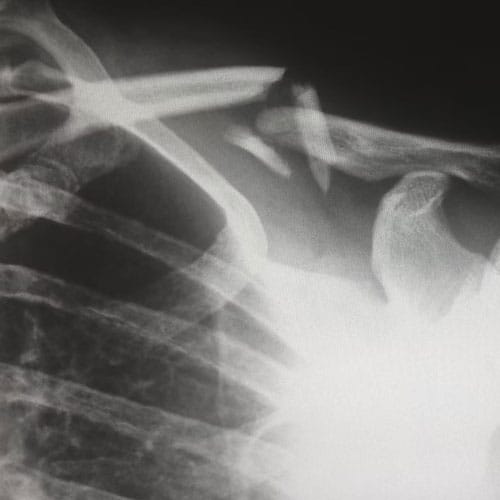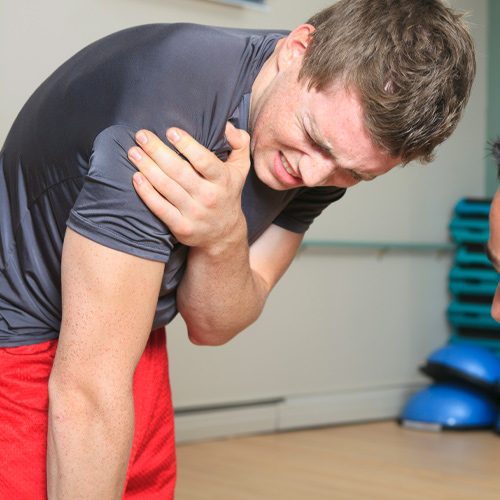The shoulder is an efficient combination of joints, muscles, and tendons that enable a wide variety of movements and ranges of motion. However, the shoulder is prone to a variety of injuries and conditions. In fact, shoulder pain will affect up to 70 percent of the population in their lifetime. It can be disabling and result in a host of unwanted consequences.
Below are some of the most common painful shoulder conditions:
Schedule a Consultation

Often, biceps tendonitis is due to wear and tear and is often considered an overuse injury. It can also be connected to other shoulder issues, such as instability, shoulder impingement, or a rotator cuff injury.
Repeated motion in work or sports that uses an overhead type of activity can cause biceps tendonitis. Work such as construction, painting, plumbing, and sports such as volleyball, tennis, and baseball are examples of overuse and can facilitate biceps tendonitis.
Bursitis is inflammation of a Bursa. When a bursa becomes inflamed, it is called bursitis. This inflammation can lead to uncomfortable symptoms and may negatively affect nearby tissues, such as tendons and muscles.

A bursa may be categorized by the tissue it lies next to. In the shoulder, the most commonly injured bursa is the Subacromial bursa, which sits between the supraspinatus muscle and the shoulder bone.
When inflamed, a bursa’s lining thickens and may produce too much synovial fluid, causing the bursa to swell. An inflamed, swollen bursa may be several times the size of a normal, healthy bursa and is extremely sensitive and painful.



Type your search term in the box below and hit enter or press the search button.
Discover cutting-edge solutions for pain relief and healing with our SoftWave Therapy and advanced regenerative treatments.